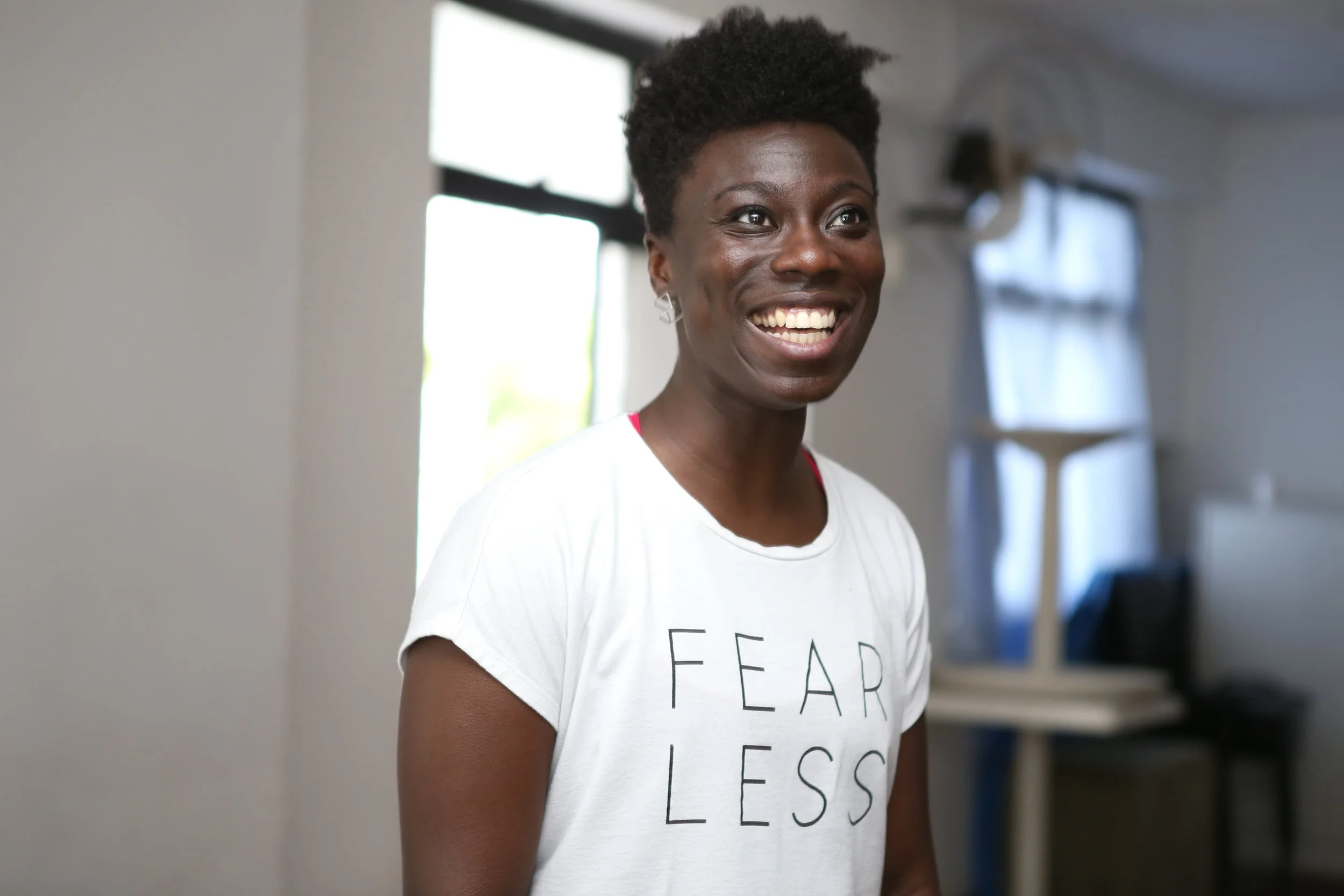StoryCenter Board Spotlight: Dr. Nikki Yeboah Shares Her Story
Editor’s Note: We recently asked several of our new board members to write about the significance of digital storytelling in their own lives. This week, we share the response of Nikki Yeboah, theatre maker and professor of Communication Studies at San José State University. Nikki brings a deep experience with social justice and storytelling to her role as board member.
Andrea Spagat, West Coast Region Director: You're new to StoryCenter's Board of Directors. What led to your decision to join?
Nikki: I decided to join StoryCenter because storytelling is an art form that is near and dear to my heart. In this world of big data and "hard" science, we lose sight of the power of a story. Stories have the power to move us, persuade us and most importantly, connect us to worlds and people beyond ourselves. As a theatre maker, I've been telling stories on stage for the last eight years, and teaching students to tell their stories for six. I've seen the impact it can have not just on the audience but on the storyteller as well. The importance of being seen and heard in this fast-paced world cannot be overstated. The first thing I did when Walt Jacobs, a longtime supporter and board member of StoryCenter, first introduced me to StoryCenter was to go on the site, and it was immediately clear to me that the organization had a deep understanding of the magic of this process. Step two was to experience one of these workshops for myself, so I signed up and headed to Berkeley for what would be a transformative experience. I told a story I didn't even know that I'd been needing to tell. With the encouragement and support of everyone there, I left the workshop feeling lighter, reflective, and with a deep feeling of accomplishment. Who could ask for anything more?
Andrea: I'd love for you to share with our readers something about your background in storytelling. How did you come to your work, and what's it all about?
Nikki: I fell in love with storytelling while pursuing a PhD in Performance Studies at Northwestern University. At Northwestern I was exposed to solo performance for the first time, and it really resonated with me. The auto-ethnographic quality of a lot of solo performance seemed to offer a solution to the feelings I had that stories like mine just didn't really matter to the outside world. At the time, and even still today, you'd be hard-pressed to find shows about young African immigrants. This lack of representation takes an invisible toll. I'd internalized the silencing, and eventually "lost" my creative voice. Storytelling offered me a way to make my unique perspective visible, and that was really liberating. My first solo piece was based on oral histories I conducted with the women in my family. This would later expand to other projects, including autobiographical performances and social justice work with other marginalized communities.
Andrea: Can you talk about especially interesting projects you're working on now?
Nikki: I'm currently working on a really exciting project with mothers who have lost their children to police brutality here in the Bay Area. I moved to the Bay Area from Toronto in August 2016, and as I started digging into the possibility of becoming a U.S. citizen, and possibly raising children here, I kept coming across stories of young black lives being killed by the state, and it scared me. I started questioning if leaving Canada was the right thing to do, wondering if accepting my dream job as an Assistant Professor at San Jose State University would in fact turn out to be a nightmare. I started following these stories obsessively, invited some local mothers to come speak to the Black Scholars at SJSU, and then eventually decided to approach them for this oral history performance project. I am collecting oral histories as we speak, and in May, there will be a performance at the Hammer Theatre in San Jose. These women's stories are incredible and speak to a strength, pain, and love that it takes to overcome an experience so harrowing. Their stories continue to impact me.
Andrea: StoryCenter is working hard to deepen and expand our commitment to social justice efforts. Can you offer some insight into what you hope to offer as a Board member in supporting these efforts?
Nikki: As someone who has spent most of her life between cultures, my default position is on the periphery, wondering what voices aren't represented. Who haven't we heard? How do we reach out to them? My positionality is what I hope to bring to StoryCenter—a deep curiosity for the stories yet untold, and the insights those silent, and silenced, voices will reveal about who we are as a community. StoryCenter is committed to representing more diverse voices not only in their outreach work, but within the structure of the organization as well. I hope that my personal and professional experience working with marginalized communities will support StoryCenter's efforts to expand their commitment to social justice.
Andrea: Anything else you'd like to add?
Nikki: I'm incredibly excited to be working with such a committed group of people doing such transformative work. In this deeply divisive political climate that we are currently in, where there seems to be campaign built on drowning out those voices deemed "unAmerican" or "unsavory," offering ways for all people to share and hear one another's stories seems like one of the most important things we can do.

